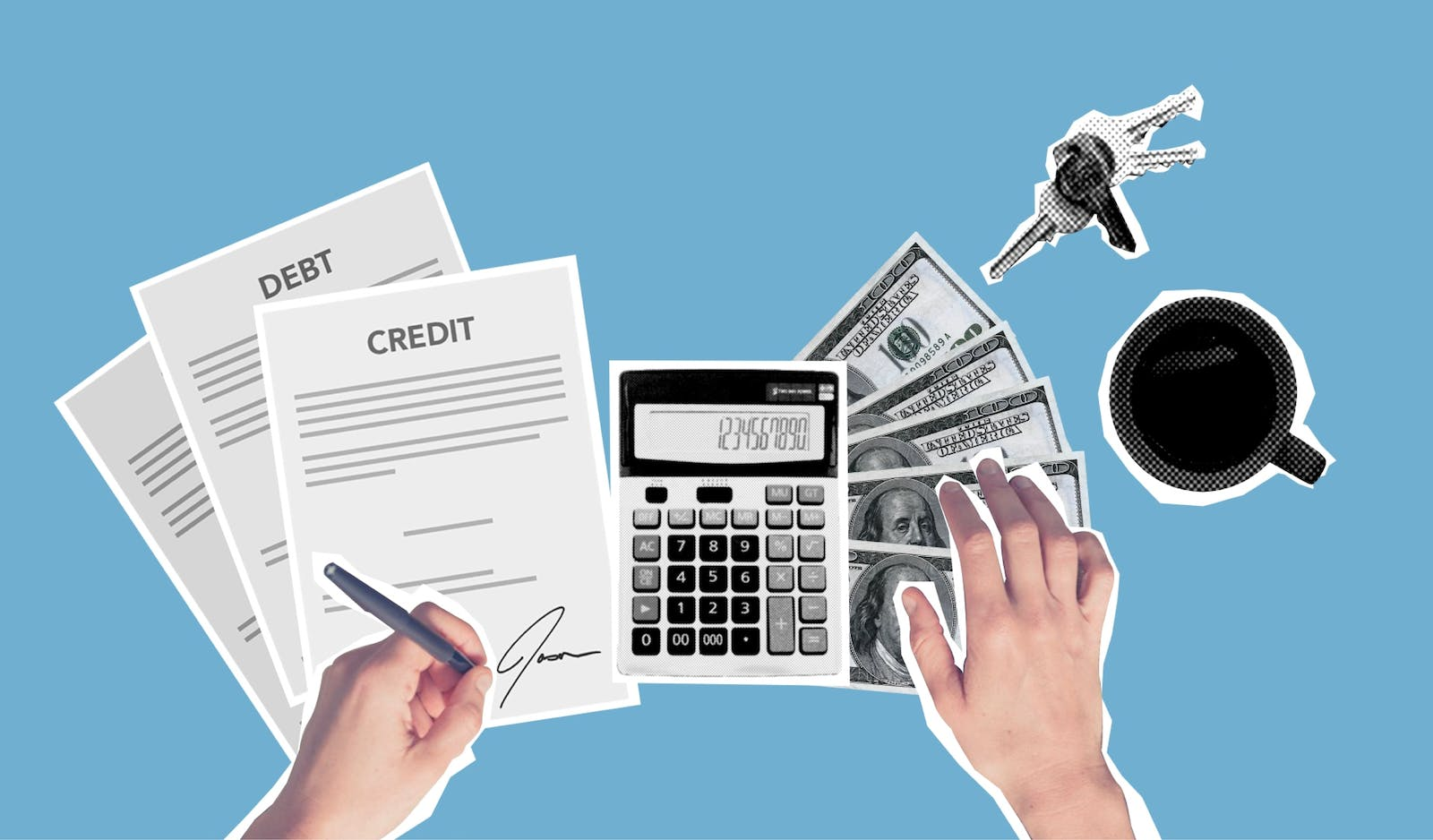You are now leaving the Bright website and entering a third-party website. Bright has no control over the content, products, or services offered, nor the security or privacy of information transmitted to others via their website. We recommend that you review the privacy policy of the site you are entering. Bright does not guarantee or endorse the products, information, or recommendations provided on any third-party website.
Did you know that according to a report, debt consolidation loan scams ranked among the top consumer complaints, with over 29,000 complaints filed in a recent year? Debt consolidation loans can offer a lifeline to individuals struggling with multiple debts, providing a streamlined approach to managing payments and potentially lowering interest rates. However, not all paths to debt consolidation lead to financial freedom.
Before we dive more about the topic it is recommended that you check out Simplifying Your Finances: Unveil the Magic of Debt Consolidation by Bright Money!
In this guide, we'll explore the traps you need to avoid when considering debt consolidation. From misconceptions to hidden fees, we'll cover it all to ensure you make informed decisions about your financial well-being.
What are the Benefits of Debt Consolidation?
Debt consolidation is a financial strategy which involves merging multiple debts into a single, more manageable payment. This approach offers several compelling benefits for individuals who are grappling with various debts and seeking a path to financial stability. Let's explore some of the key advantages of debt consolidation:
1. Simplified Payments
One of the most important advantages of debt consolidation is the simplification of your monthly payments. Instead of juggling multiple due dates and varying interest rates, you'll only have to make a single payment each month. This streamlines your financial responsibilities, making it easier to keep track of your obligations and avoid missing payments.
2. Lower Interest Rates
When compared to the rates on your existing obligations, debt consolidation typically gives an opportunity to get a lower total interest rate. This has the potential to save you a significant amount of money over time. Consolidating high-interest obligations into a single loan or credit account with a lower interest rate lets you to direct more of your payments toward principle reduction.
3. Improved Financial Management
Managing numerous debts can be overwhelming and confusing. Debt consolidation loan simplifies your financial landscape, allowing you to focus on a single debt and track your progress more effectively. With a clear repayment plan in place, you can set specific goals and milestones, motivating you to stay on track towards becoming debt-free.
4. Potential Boost to Credit Score
Consolidating your debts can impact your credit score positively in several ways. First, by making consistent, on-time payments through the consolidation process, you demonstrate responsible financial behavior. Additionally, if you're able to pay off or significantly reduce your existing debts through consolidation, your credit utilization ratio will improve, which is a key factor in determining your credit score.
5. Reduction of Collection Calls
Struggling with multiple debts often leads to persistent calls from creditors and collection agencies. Debt consolidation can help alleviate this stress by satisfying your outstanding debts and reducing the frequency of collection calls. This can contribute to an improved overall quality of life and a sense of relief from the constant harassment.
6. Fixed Repayment Schedule
Debt consolidation typically involves setting up a structured repayment plan with fixed monthly installments. This predictability allows you to plan your budget more effectively and avoid unexpected fluctuations in your payment amounts. Knowing exactly how much you need to pay each month makes it easier to allocate funds for other essential expenses.
7. Potential for Debt Payoff
While the primary goal of debt consolidation is to make your debts more manageable, it can also pave the way for quicker debt payoff. With a lower interest rate and a focused repayment strategy, you may find yourself in a position to accelerate your debt reduction efforts and achieve financial freedom sooner than you originally anticipated.

Common Traps to Avoid in Debt Consolidation
A survey revealed that 48% of respondents who sought debt consolidation services were unaware of the associated fees. Here are some common traps to avoid in debt consolidation:
1. Ignoring High-Interest Rates
Studies emphasize that teaser interest rates, often used to entice borrowers, can result in higher payments later. Over 40% of borrowers experienced payment shocks due to rate adjustments after the initial period.
One common mistake is assuming that all debt consolidation options automatically lead to lower interest rates. While consolidation can offer more favorable terms, overlooking existing high-interest rates on some debts could cost you more in the long run. It's crucial to evaluate the interest rates of your current debts against the rates offered by potential consolidation methods.
2. Overlooking Fees and Charges
Debt consolidation isn't free, and various fees and charges might apply. These can include application fees, origination fees, and prepayment penalties. Failing to account for these costs can result in unexpected expenses that negate the benefits of consolidation. Always read the fine print and ask your provider about any potential fees before committing.
3. Not Considering Credit Score Impact
Consolidating debt can influence your credit score, both positively and negatively. While consolidation might improve your credit utilization ratio, applying for new credit can result in a temporary dip in your score. It's essential to understand these potential impacts and weigh them against the benefits before proceeding.
4. Opting for Long Repayment Terms
Extending your repayment terms might seem appealing as it can lead to lower monthly payments. However, longer terms often mean paying more in interest over the life of the loan. Striking the right balance between manageable monthly payments and minimizing interest costs is key.
5. Choosing the Wrong Debt Consolidation Method
Not all debt consolidation methods are created equal. Choosing the wrong one for your financial situation can lead to more significant challenges. Whether you're considering a credit card Debt Consolidation, personal loan, Debt Consolidation loans or debt management plan, thoroughly research each option to ensure it aligns with your goals.
6. Falling for Scams and Unreliable Companies
Unfortunately, the world of debt consolidation has its share of scams and unreliable companies looking to take advantage of those in financial distress. Be wary of offers that sound too good to be true or companies that pressure you into making quick decisions. Research trusted and potential providers like Bright Money and check for accreditation to avoid falling victim to scams.
7. Neglecting a Budget
Debt consolidation is a tool, not a magic solution. Without a solid budget in place, you might find yourself accumulating new debts even after consolidating. It's important to address the root causes of your debt and create a budget that helps you maintain financial discipline.
What are the Alternatives to Debt Consolidation?
While debt consolidation can be an effective strategy for managing multiple debts, it's important to recognize that it may not be the best fit for everyone's financial situation. Fortunately, there are several alternative approaches that individuals can consider to tackle their debt and achieve greater financial stability. Let's take a closer look at some of these alternatives:
1. Snowball Method
A debt repayment technique known as the "snowball method" emphasizes paying off your smaller obligations first while making minimal payments on your larger ones. You feel more accomplished and motivated to take on bigger bills as you pay off each modest one. As you watch your obligations slowly disappear, this strategy may provide you a sense of psychological fulfillment and momentum.
2. Debt Management Plan (DMP)
Working with a credit counseling organization to bargain with your creditors for lower interest rates and fees is a key component of a debt management plan. Your payments are combined into a single monthly payment by the organization, which develops a structured payback plan. DMPs don't usually need you to obtain a new loan, but they can help you manage your debt better and eventually pay it off.
3. Balance Transfer Credit Card
A credit card having a balance transfer feature can be a good choice for people who have credit card debt. Transferring high-interest credit card debts to a card with a reduced or even zero-interest introductory term is an example of this. You may focus on paying off your debt more effectively and perhaps save money on interest payments if you take advantage of the reduced interest rate.
4. Personal Loan
Taking out a personal loan to consolidate your debts is another alternative. With a personal loan, you can often secure a fixed interest rate and a structured repayment plan. By using the loan proceeds to pay off your high-interest debts, you can simplify your payments and potentially reduce the overall interest you pay over the life of the loan.
5. Debt Settlement
Debt settlement involves negotiating with the creditors to settle your debts for a lesser amount than what you owe. While this approach can lead to reduced debt balances, it typically requires you to have a lump sum available to make the settlement payments. Debt settlement may have negative implications for your credit score, and it's important to carefully consider the potential consequences before pursuing this option.
6. Increasing Income and Cutting Expenses
In some cases, addressing debt may require a combination of increasing your income and cutting expenses. Finding ways to earn extra income, like taking on a part-time job or freelancing, can provide additional funds to put towards your debts. Similarly, cutting unnecessary expenses and creating a strict budget can free up more money for debt repayment.

Conclusion
Navigating the world of debt consolidation requires careful consideration and informed decision-making. By avoiding common traps, understanding alternative methods, and choosing reputable providers, you can harness the power of debt consolidation to take control of your financial future. Remember, debt consolidation is just one step; maintaining financial discipline and a solid budget are key to achieving lasting financial freedom.
Recommended Reads:
FAQs
1. How can I spot red flags in debt consolidation offers to avoid scams?
A: Be vigilant for unsolicited offers, promises of instant results, and requests for upfront fees. Legitimate providers are transparent, accredited, and provide clear terms.
2. What role do unethical debt consolidation companies play in trapping consumers?
A: Unscrupulous companies may lure with false promises, charge excessive fees, or push you into unsuitable solutions. Thoroughly research and choose reputable, customer-reviewed companies.
3. How do hidden fees and charges contribute to traps in debt consolidation programs?
A: Hidden fees, like origination or processing charges, can inflate the total cost of your consolidation. Always review the fine print and ask for a breakdown of all potential fees.
4. What are the long-term consequences of teaser rates in debt consolidation loans?
A: Teaser rates, initially low but prone to sharp increases, can catch you off guard, resulting in higher payments down the line. Carefully examine how rates change over time.
5. Can an exclusive focus on lower monthly payments lead to a debt consolidation pitfall?
A: Opting for the lowest monthly payment could extend your repayment term, costing you more in interest over time. Aim for a balance between manageable payments and a reasonable timeline.
6. How do variable interest rates contribute to the complexity of debt consolidation?
A: Variable rates, while initially attractive, can fluctuate unpredictably, potentially leading to unaffordable payments. Evaluate your risk tolerance and opt for fixed rates when possible.
7. What dangers are associated with using a home equity loan for consolidation?
A: Using your home as collateral carries the risk of foreclosure if you default on payments. Ensure you can meet the new loan terms to protect your home.
8. Can hastily choosing a debt consolidation option result in a financial setback?
A: Rushing into a decision without understanding the terms, interest rates, and fees can also lead to a more expensive and counterproductive consolidation arrangement.
9. Are there scenarios where debt consolidation might worsen my financial position?
A: Consolidation could be counterproductive if it results in higher interest rates, extends repayment, or doesn't address the root causes of your debt accumulation.
10. How does overlooking the fine print of a debt consolidation agreement lead to pitfalls?
A: Neglecting to read and comprehend all terms, including prepayment penalties and hidden fees, could expose you to unexpected costs or restrictions.
11. What role does neglecting a budget play in falling into debt consolidation traps?
A: Failure to create a realistic budget and adhere to it can lead to overspending, negating the benefits of consolidation and perpetuating a cycle of debt.
12. How can susceptibility to high-pressure sales tactics impact my debt consolidation journey?
A: Yielding to high-pressure tactics might result in a decision that doesn't align with your needs or financial goals. Take your time and make well-considered choices.
13. How does inadequate research jeopardize effective debt consolidation?
A: Insufficient research could cause you to overlook better-suited options, potentially resulting in higher costs and missed opportunities for debt relief.
14. What risks accompany transferring unsecured debt to secured loans during consolidation?
A: Transferring unsecured debt, like credit card balances, to secured loans jeopardizes your assets, such as your home, which could be seized if you default.
15. How can I proactively shield myself from debt consolidation pitfalls?
A: Empower yourself through education. Thoroughly research providers, understand the terms, compare offers, seek recommendations, and prioritize transparency to navigate debt consolidation wisely.



